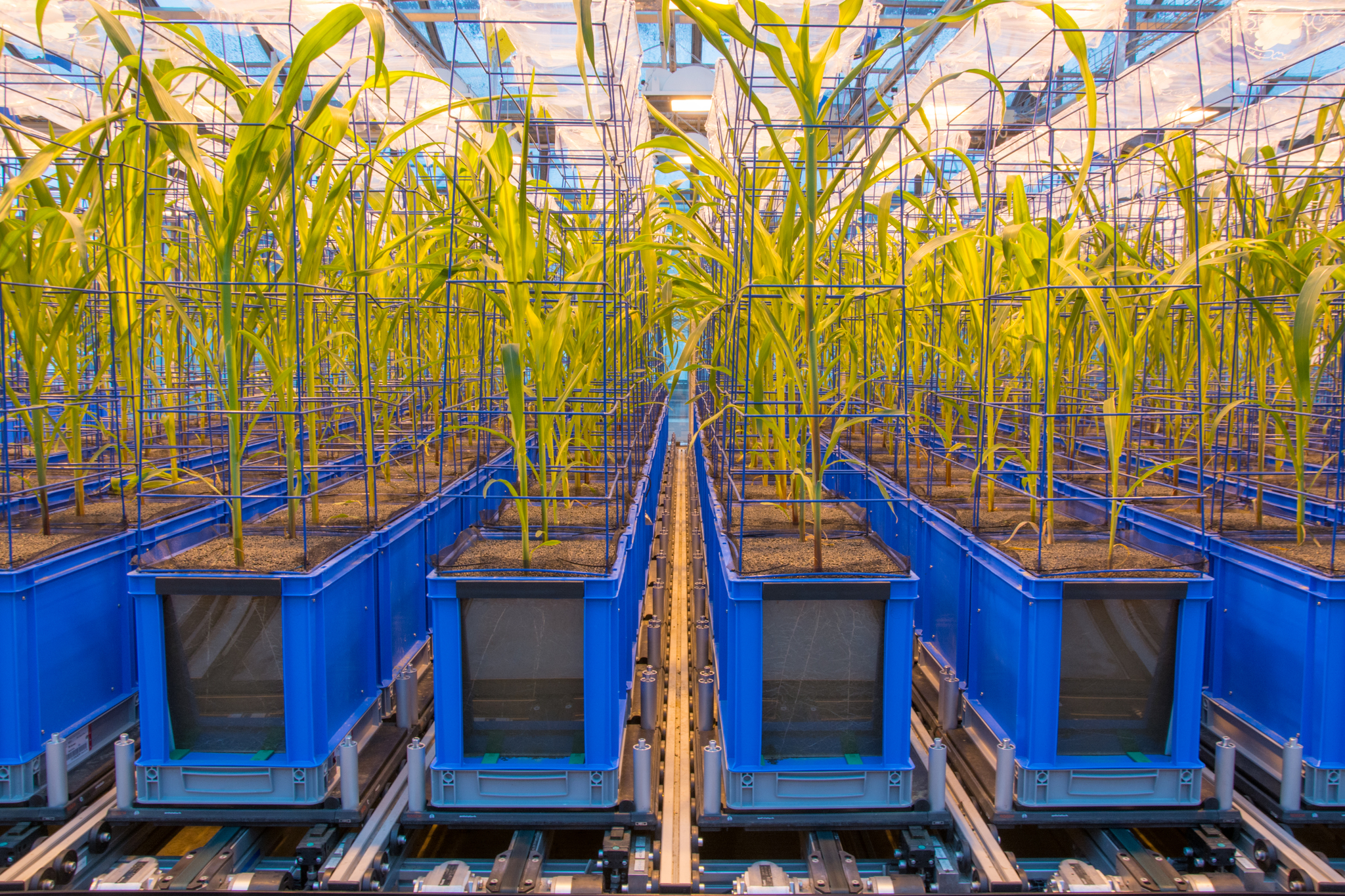
SP5: RhizoPerform
Effects of rhizosphere traits on agronomic performance
Summary:
Drought is limiting the agronomic performance of crops and future yields in grain production will increasingly depend on new varieties with improved water use efficiency. Root-soil interactions need to be optimized. To develop “future-proof” crops integrated analysis of phenotypes under different environmental conditions are necessary. A multi stage selection process from laboratory to mesocosms and finally to field scale is necessary to acquire reliable and agronomically relevant data on the effect of rhizosphere traits on drought resilience of winter wheat and grain maize. The main performance indicator in agricultural production is yield or biomass production. Besides this, the quality of the product, e.g. protein content and thus backing quality of wheat, is of agronomic importance. To evaluate the overall performance, a multi trait approach, measuring several agronomic yield and biomass parameters simultaneously, is applied. In addition, drought sensibility can considerably vary in time and is influenced by environmental conditions. To take this into consideration state of the art remote sensing technologies will be used.
Main research questions:
- How do rhizosphere traits affect the agronomic performance of wheat and maize under drought?
- To what extend and when is there an effect of selected traits on yield components, quality and stability? How do these traits alter soil conditions under field conditions?
|
Contact |
|||
|
Martin Wiesmeier |
Jessica Thiel |
|
Former colleagues (1st phase)
